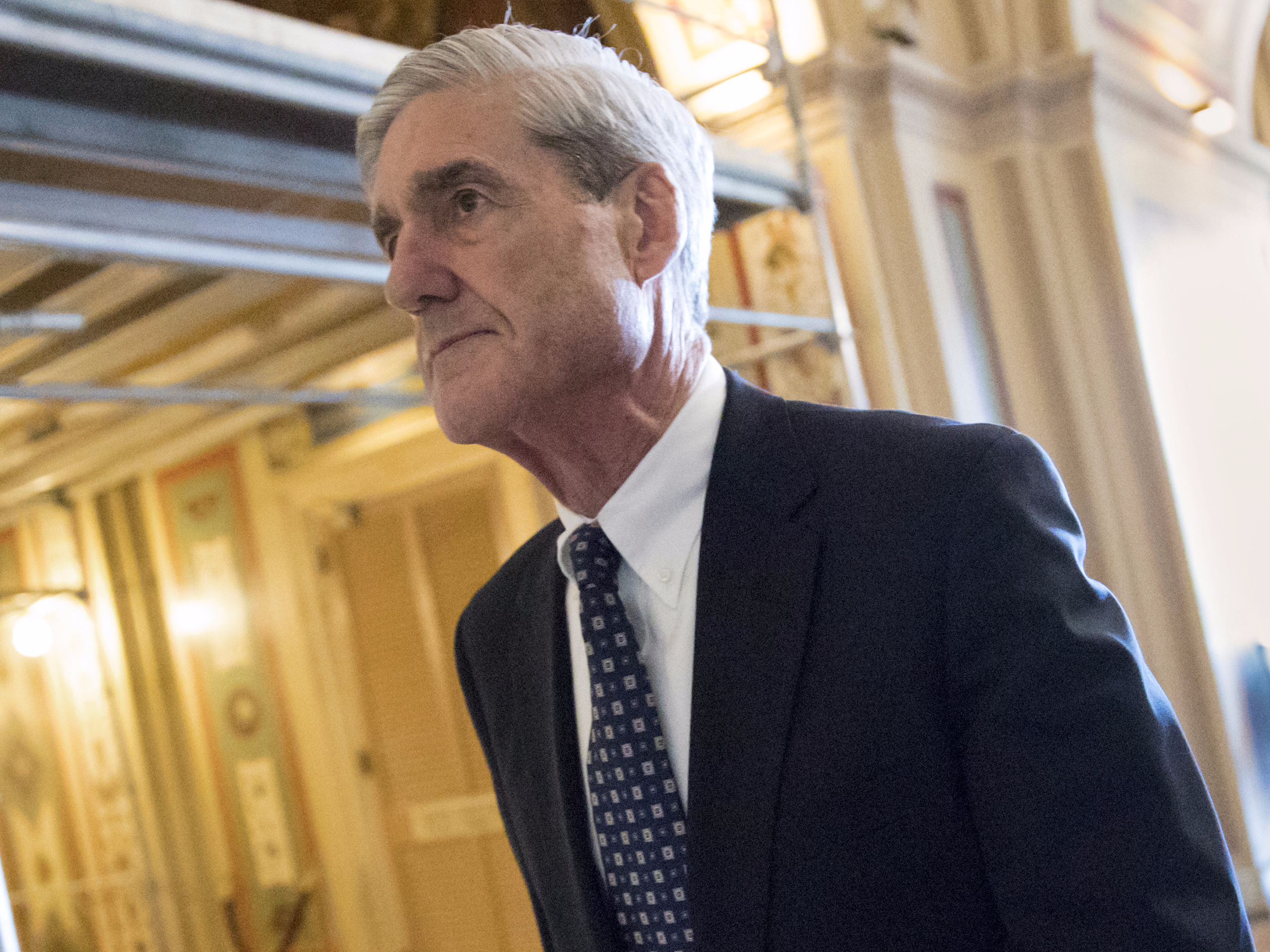- Special counsel Robert Mueller has filed the first charges in the Russia investigation, CNN reported Friday. Mueller is investigating Russia’s interference in the 2016 election, as well as whether anyone in President Donald Trump’s campaign colluded with Moscow. Veteran journalist Carl Bernstein told CNN Friday that Mueller’s latest move could be a signal to other potential defendants.
Special counsel Robert Mueller has filed the first charges in the Russia investigation, and a federal grand jury in Washington, DC, approved them, CNN reported Friday.
The charges are sealed, CNN said. The nature of the charges are unclear, but they could result in an arrest as soon as Monday, CNN reported, citing sources briefed on the matter.
Mueller was appointed in May to oversee Russia’s interference in the 2016 election after President Donald Trump fired then-FBI director James Comey. As part of the investigation, Mueller is looking into whether any Trump associates colluded with Moscow to tilt the election in Trump’s favor.
The special counsel is also investigating Trump for possible obstruction of justice related to his decision to fire Comey. And he is looking into several of the president’s close associates, including former campaign chairman Paul Manafort, former national security adviser Michael Flynn, and senior adviser Jared Kushner.
Mueller's latest move does not mean it was made solely to indict an individual - it could be also be seen as a signal to other possible defendants, political analyst Carl Bernstein said to CNN Friday.
"There are others who may be subject to similar charges, who have further knowledge about dealings with Russia," Bernstein said. "So it may be aimed at these prospective indictees as well, not simply this person or persons they want to flip."
Former federal prosecutor Renato Mariotti echoed that view. Before approving charges, jurors must believe there's enough evidence to believe a crime was committed, and prosecutors don't usually present indictments unless they believe they can prove the charges beyond a reasonable doubt at trial, Mariotti wrote. For that reason, they typically wait until the end of an investigation to file charges.
However, Mariotti added, prosecutors sometimes bring charges earlier if it's part of an effort to coerce a defendant into "flipping" as a witness and cooperating with the investigation.
The "obvious candidate" in this case, he said, is Manafort.
Mueller has long been zeroing in on Manafort, who is being scrutinized for possible financial and tax crimes, his contacts with Russian officials, and his work as a foreign agent for entities linked to the Kremlin - particularly Ukraine's pro-Russia Party of Regions.
In addition to working with the US attorney's office in Manhattan, Mueller is collaborating with New York Attorney General Eric Schneiderman to probe Manafort's finances.
Investigators have also been homing in on Manafort's activities outside of his business dealings. Last month, it emerged that US investigators obtained a FISA warrant to wiretap Manafort before and after the election. It was later reported that Manafort offered "private briefings" about the campaign to Oleg Deripaska, a Russian oligarch and ally of Russian President Vladimir Putin, right before the Republican National Convention last year.
It also emerged in August that the FBI conducted a predawn raid on Manafort's home in July, and agents working with Mueller left Manafort's home "with various records." The New York Times reported in September that following the raid, investigators working with Mueller told Manafort he was going to be charged with a crime.
Manafort has not been formally accused of any criminal conduct, and has previously denied any wrongdoing.
"The tactic that Mueller is using - telling Manafort that he will be charged - is generally used when prosecutors are trying to get a defendant to 'flip,'" Mariotti wrote in September. The best way to do that, he added, is to assemble enough evidence to make it likely that the individual, if charged, would be convicted and sentenced to jail time.
"They absolutely have something because they got a search warrant," Joseph Pelcher, a former FBI counterintelligence agent who was stationed in Russia and specialized in organized crime, told Business Insider in a recent interview of Mueller's scrutiny of Manafort. "You need probable cause to get a search warrant, so there is something there, without question."
Pelcher said that if he were investigating Manafort and found evidence of possible wrongdoing, "the first thing I would do is sit Manafort down and get him to cooperate, because he's not the big fish here."
